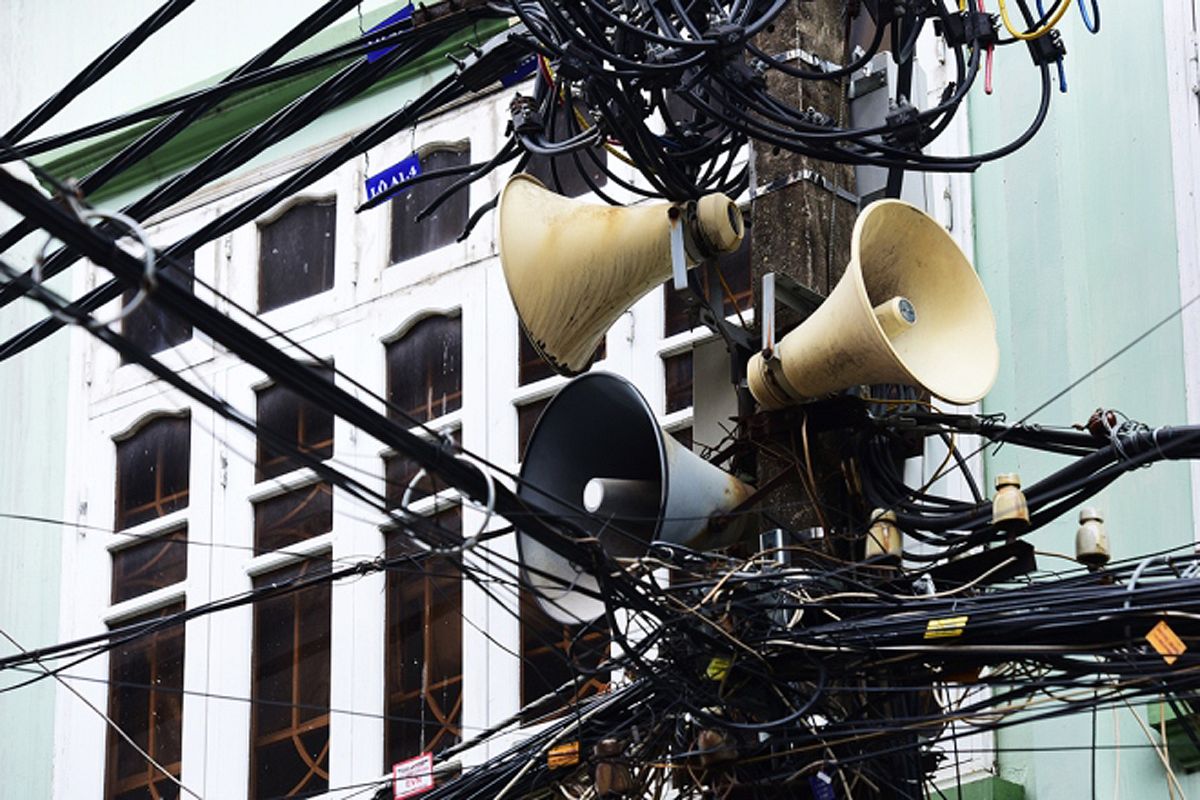If you’re a frequent viewer of the morning news segment Cafe Sang Voi VTV3 (Morning Coffee With VTV3), you might have spotted Le Huong Giang, the first blind TV host of Vietnam’s national television broadcaster VTV.
Apart from the VTV3 news segment, 23-year-old Le Huong Giang’s career in media also includes a host of shows from radio channel VOV Traffic to Cuoc Song Van Tuoi Dep, a TV special that highlights the life and works of people with disability. At a glance, Giang’s articulation and charisma seem to fall right in line with what’s expected of a TV host, but not many are aware of the trials and tribulations the young MC had to endure before the success and confidence today.
Le Huong Giang was born in 1995 in Hanoi with some visual impairments: one of her eyes is completely blind but the other still retained one-tenth of its capability. “I could still perceive colors and some large shapes,” she shared in a personal essay for VietnamNet. Giang spent time in a normal kindergarten, but started going to Nguyen Dinh Chieu Specialist School, an institute for kids with disabilities during her primary school years.
Le Huong Giang is now a familiar face in VTV's television programs. Video via YouTube channel WeChoice Awards.
“It was the first time I recognized that there was a difference between me and a neighbor girl. I realized that I am a blind person,” Giang reminisced. “Some people told my parents: ‘Don’t let her touch anything, it would break’ or ‘You should prepare a large amount of money because after you [the parents] pass away no one will take care of her.’ Luckily, my parents didn’t buy that; they believed I can do anything.”
Giang’s condition worsened when she was on the cusp of getting into middle school; both eyes went blind, and things started to change around her. “I started to notice that the sighted kids stopped hanging out with me,” she writes. “I felt powerless because I couldn’t connect with people. It was horrifying.”
Any mention of blindness in Vietnam usually conjures up images of specialist masseurs or artisans due to the toxic notion that those with a disability are fated to a future without excellence. Giang’s teachers even told her that she didn’t need to bother with science, even though she loved math. This discriminatory school of thought isn’t unique to Giang's experience but also that of her other friends with visual impairment whose parents didn’t place trust in them because “why bother with an education when disabled.”

Her time in Nguyen Dinh Chieu Specialist School taught her guitar and art skills. Photo via Kenh14.
Giang’s family, however, was different: she was taught to believe that she has the key to take charge of her own life, despite what others believe. She decided to apply for a spot in Thang Long High School, one of Hanoi’s top schools at the time, while also nurturing her wish to become a counsellor and shatter the defeatist notion held by parents of disabled kids themselves.
It was a crazy decision. Thang Long is notoriously difficult to get into, even for sighted kids, according to Giang. Nonetheless, her determination was once again recognized by an adult who believed in her: the principal of Thang Long High School wrote a letter to the Hanoi Department of Education and Training granting her direct admission. She was the only student with a disability in her cohort.
“I picked the school because I wanted to study in an environment that doesn’t have any disabled people,” she explained. “I want to force myself to find ways to adapt to the world without retreating into the community of people with impairments.”
“It’s a characteristic of disable people: as long as they can find one or two people like them, they would retreat and distance themselves from the rest,” Giang added.
That resolve to escape her own comfort zone paid off; she became much happier in the new school. “In high school, when my classmates talked to me and described to me their interests, I was overjoyed. My teachers also consulted me a lot because they’ve never had any student like me.”

In Giang's home in Hanoi, there's a corner dedicated to her school certificates and awards. Photo via Kenh14.
Giang’s first breakthrough came during her time in high school, when she clinched the third prize in a national invention competition for high school students with her handicap-accessible device to detect counterfeit money. The prize once again got her directly admitted to Hanoi’s University of Social Sciences and Humanities as a psychology major.
In 2016, she achieved a second breakthrough by participating in The Next MC, a competition for university students, and attained the top prize. By that point, she was also working as a contributor for the radio show VOV Traffic. In September 2017, an editor of the network’s VTV4 channel reached out to Giang, hoping that she would join their TV special Cuoc Song Van Tuoi Dep as a host. “It was the happiest day of my life,” she shared.
“The first time on air, I had to reshoot 10 times — five times when my feet needed adjustment and five times with my arms,” Giang recalled. “However, the video technicians told me: ‘If we get it wrong, we can redo, there’s no need to be afraid.’ And just like that, I tried my best.”
Today, Giang is no longer an awkward first-timer when it comes to presenting. As VTV’s first-ever blind newscaster; she’s appeared on a variety of segments, be it handicap-centric or not.
[Top photo via Kenh14]















